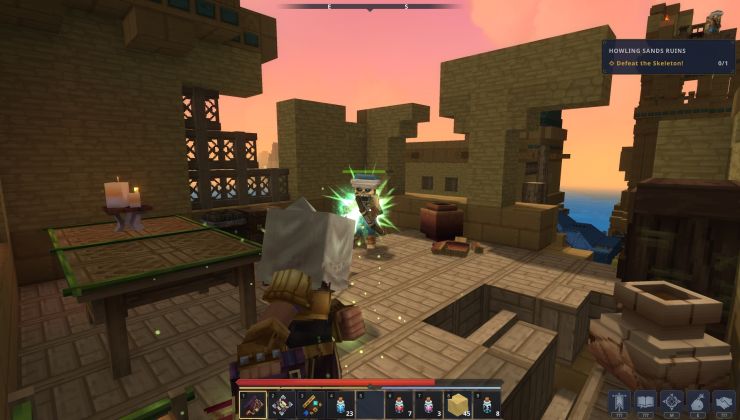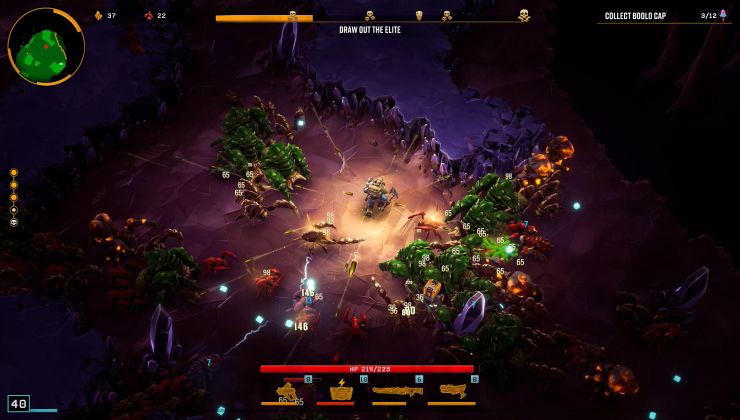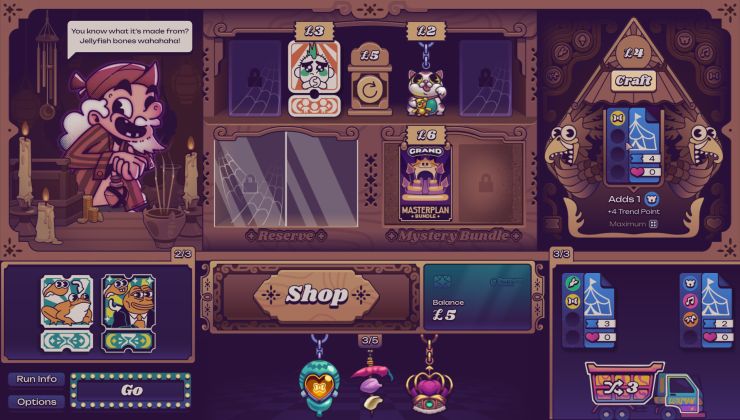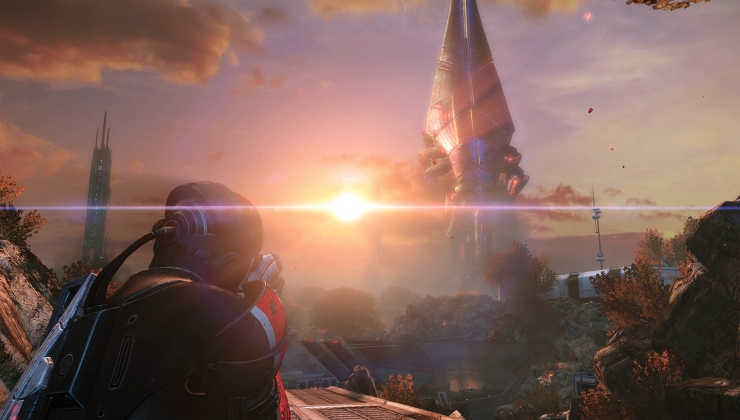Prison Architect 2 from Double Eleven and Paradox Interactive was recently revealed with an entirely new look, and while the original has full Native Linux support, the sequel will not.
Apart from their main grand strategy games developed directly by Paradox, it seems they continue to move away from direct Linux support with all the other games now. Just like we saw with Cities Skylines 2, Star Trek: Infinite, The Lamplighters League and Age of Wonders 4.
Writing in an FAQ post on their official forum a Paradox staffer noted:
Will the game have Linux support? Will it be playable on the Steam Deck?
Prison Architect 2 is not supported for Linux. We are currently investigating Steam Deck Verification.
So if you want to play it on Linux or Steam Deck, you'll need Proton. Thankfully, Proton does run almost anything you throw at it nowadays, especially single-player games like this. Still, it's somewhat amusing for developers to not support Linux, but support (or look at supporting) the Steam Deck — which uses SteamOS Linux. But the Steam Deck is a dedicated known platform of course, compared to the many different desktop configurations of Linux. But again, Proton should run it just as well on Desktop Linux if it runs on Steam Deck.
Prison Architect 2 is due out on March 26th, and according to the FAQ it will be a "full-fledged game, with old and new features such as the Career mode, the Sandbox mode, and modding tools" and in regards to DLC which Paradox games are pretty notorious to have lots they said "post-launch content and DLCs are not our focus right now".
You can pre-order from:
Quoting: PinguinoShould we tell them? :tongue:No, they might be penguinists
We need an option for games to be officially supported on Linux desktop.
I make a proposal for Valve to have a "Desktop" verified tag next to "Steam Deck" verified. This would then allow devs and publishers to officially support a game via Proton on Desktop PC's the same as they do for the steam deck.
I know that in most circumstances the games just run but I want "Official" Support. I don't like the idea of having to rely on Proton to play my games as there are no guarantees the game will run in future and a lot of publishers don't care either.
I have not pre ordered the game due to the CS2 situation but I am really looking forward to playing PA2. I have been happy with what I have seen of the game so far and really hope we can get steam deck support as a minimum.
Quoting: finaldestI make a proposal for Valve to have a "Desktop" verified tag next to "Steam Deck" verified. This would then allow devs and publishers to officially support a game via Proton on Desktop PC's the same as they do for the steam deck.I can almost guarantee that it wouldn't be used. It's the same responsibility as putting out a Linux build and I just don't see publishers biting.
I know that in most circumstances the games just run but I want "Official" Support. I don't like the idea of having to rely on Proton to play my games as there are no guarantees the game will run in future and a lot of publishers don't care either.
Quoting: alka.setzerProton, gave us emulated Windows games (mostly under Steam), took from us Native games (under our distro/platform of choice).It was inevitable. Still, looking at the sheer mass of Windows games we can now seamlessly play in Linux, compared to the relatively small amount of native ports when got back then during porting heyday...it was still a VERY good deal.
2012: 1/2 (50%)
2013: 5/8 (63%)
2014: 7/12 (58%)
2015: 9/13 (69%)
2016: 6/7 (85%)
2017: 10/15 (66%)
2018: 4/11 (36%)
I guess you could write a thesis about the topic, yet I remember the panic we had after Steam Machines had flopped. We got a lot of ports 2015 and 2016, 2017 AAA releases had already declined and in 2018 even the indies jumped of the boat.
The Linux gaming community was heavily stressed out by then. Aspyr had already pretty much jumped of the boat, Feral released iteration after iteration of the same game series, Humble was sold to IGN and had dropped all Linux requirements. Proton and SteamDeck didn't bring us Ports like the SteamMachines did, but without either of those, there would be no Linux gaming community to speak of.
Quoting: finaldestWe need an option for games to be officially supported on Linux desktop.This. Native builds are not necessary (even though they are better than Wine - in my opinion - if done properly), but what we definitely need (and what we had when native builds were a thing) is official Linux / Steam Deck support from game devs. Not just relying on Valve and Wine/Proton "to magically make their games work".
I make a proposal for Valve to have a "Desktop" verified tag next to "Steam Deck" verified. This would then allow devs and publishers to officially support a game via Proton on Desktop PC's the same as they do for the steam deck.
Last edited by AsciiWolf on 14 Feb 2024 at 7:02 pm UTC
Quoting: finaldestI think it clear at this point that native builds on Linux are over.Well, except the percentages of native games are fairly steady. And may start to rise if Godot continues to take off, as Linux is very much a first class citizen in Godot. Note this article from a day ago, where a commenter notes that more than half of the Godot demo reel of games is native Linux.
Every time a game comes out where it mentions not running Linux natively, someone says this. The plural of anecdote is data, but it usually has to be a really big plural. Remembering the last couple of times you saw an article about a game with no native Linux does not qualify.
Phase 1: Proton makes most Windows games easily playable on Linux. As a side effect, developers stop targeting native Linux and so Linux gets hardly any native games.
Phase 2: Because a major roadblock to Linux adoption is gone, Linux increases its desktop share, and maybe Valve releases something like a new Steam Machine (I wasn't expecting it to be something like the Deck) and racks up some numbers with that.
Phase 3: Eventually as Linux share rises, native Linux gets targeted as a platform again because it's big and important now.
I was shocked to find that here we are just at the beginning of phase 2, but native builds have not gone away--certainly not any more than they were anyway before Proton came out.
Quoting: Purple Library GuyI would think the original statement was more aimed at the number of native AAA titles being down. Since the exit of Feral and Aspyr from the market, I can not name you a large studio still releasing native ports, with the sole exception of Paradox (which also has limited native Linux support to their core games). You'd be correct about Indie games, though. I can't see a change there, either.Quoting: finaldestI think it clear at this point that native builds on Linux are over.Well, except the percentages of native games are fairly steady. And may start to rise if Godot continues to take off, as Linux is very much a first class citizen in Godot. Note this article from a day ago, where a commenter notes that more than half of the Godot demo reel of games is native Linux.
Every time a game comes out where it mentions not running Linux natively, someone says this. The plural of anecdote is data, but it usually has to be a really big plural. Remembering the last couple of times you saw an article about a game with no native Linux does not qualify.
As for the engines, the commercially/freely available ones all have Linux support, not only Godot. That's not even the problem. The problem was and still is that you can't design and implement a game on Windows, using Windows-only expertise, Windows tools, Windows middle-ware, and Windows testing - and at the end of development hit an Export button and expect the output to magically run on Linux. That's not how that works. If you want to export to a platform, you have to make that platform part of your development process from the get-go. The vast majority of medium/larger studios never did that, and unless our platform market share goes up in a very dramatic fashion, I don't expect them ever to. We have to be happy for them having a look at Steam Deck "support".
Judging from the Godot Discord, Godot games seem to be (as of now) disproportionately developed on Linux by people having Linux experience and are generally smaller-than-average scale (e.g. using fewer 3rd party components), so that's IMO why it suffers less from the problem than other engines.
Quoting: Kimyrielle...Agree with everything you say. I don't really miss Feral nor Aspyr as their middleware was adequately replaced by an open source software, supported by Valve. And I'd argue Valves support is far better since they aren't bound to contracts ending, like what happened to many of these ports.
Native games with first class customer support and outsourced ports are two entirely different things, let's hope we will at some point be enough to count for that.
Quoting: KimyrielleI would think the original statement was more aimed at the number of native AAA titles being down. Since the exit of Feral and Aspyr from the market, I can not name you a large studio still releasing native ports, with the sole exception of Paradox (which also has limited native Linux support to their core games). You'd be correct about Indie games, though. I can't see a change there, either.Well, true enough. Although I don't think that's connected to Proton because AAA ports were already pretty much dead by the time Proton became a noticeable thing. Still, I guess I tend not to think "AAA" when I think "games" because I'm not sure I've ever played an AAA game, so if someone says something like "native builds on Linux are over" it doesn't occur to me that they might mean "native builds on AAA games because the rest don't matter". Not that I have anything against AAA games, they just tend not to be the kind of genre I play.
Last edited by Purple Library Guy on 14 Feb 2024 at 9:30 pm UTC
Quoting: KimyrielleAs for the engines, the commercially/freely available ones all have Linux support, not only Godot. That's not even the problem.Welllll, I know they have support . . . but there's "support" and "support". It seems to me I'm seeing a lot of bitching about the quality of Unity's support lately, even a couple of cases where some developers abandoned their Linux support because they were moving to a new version of Unity and couldn't get past its problems/bugs with Linux. Not sure about Unreal . . . but given who makes it I'd be hesitant to rely on their Linux support. With Godot you can depend on their Linux support being just as good as their support for any other platform, maybe better. I do think that could make a difference, although I do take your point about the nature of the projects on Godot currently skewing towards Linux.
Last edited by Purple Library Guy on 14 Feb 2024 at 9:37 pm UTC
Quoting: Purple Library GuyWith Godot you can depend on their Linux support being just as good as their support for any other platform, maybe better.I believe that's largely because Godot is Free, Open Source software. Linux people are more inclined towards FOSS software and contributing to FOSS projects, and so Linux gets higher priority from the core Godot developers because of this feedback loop between Linux-based contributors and developers.
I also think Unity3D and Unreal Engine developers prioritize Windows and consoles because that's where most of the revenue comes from, and so Windows and consoles are more important to the aforementioned engines' core developers.
Quoting: Purple Library GuyPhase 3: Eventually as Linux share rises, native Linux gets targeted as a platform again because it's big and important now.I'm not so sure that will happen. I know market share is the #1 complaint most developers have about Linux, but if developers can just export a Windows build, and expect it to run perfectly on Linux under Proton, why would developers go to the trouble of trying to offer a native Linux port? In other words, if it's not broken, there's no need to fix it. And not going to the trouble of offering a native Linux port saves time and money that could be better spent on other things.
Last edited by Talon1024 on 15 Feb 2024 at 12:15 am UTC
Last edited by tohur on 15 Feb 2024 at 5:41 am UTC
You reminded me that I should buy Prison Architect for Linux.
I don't buy Prison Architect 2 if it doesn't have the native Linux version,
I want to remind everyone that when you have difficulties with native versions of Linux, you don't have to deal with these issues.
Install the older version of the operating system on the second partition. When you have the DRM-free version of a game, copy it to the partition with the supported operating system. Then enjoy playing it.
Mac users and Windows do it all the time. The console players keep different devices to play their favorite games. I keep four computers with different versions of Linux connected to the same monitor. I know Linux has problems, but I like using it despite these issues.
I respect people who are spending months porting games to Linux. Later, they read many comments that they should never do it. It must be very challenging.
Why some Linux users don't complain that open source applications are ported to Linux?
Maybe programmers should only port open source applications to Windows, Mac, MorphOS, AmigaOS, etc., and ignore Linux because we have Wine.
Firefox could be better if developers didn't waste time porting it to Linux.
I think some users can't appreciate what others are doing for them.
I don't mind playing on proton/dxvk, it's a stack to build on for Linux, I don't see it as more or less than that. I even switched to that for titles which actually do have native linux support since the native linux versions are so badly optimized and the games just run better on proton/dxvk.
I think they should consider actually supporting Proton/dxvk for their desktop builds and steam deck, that would be a middle ground I'd like to see.
I think the time for native builds is certainly over. DXVK got too good for that, and we have to give kudos to Philip Rebohle, Joshua-Ashton and all the other contributors for that. And Valve for sponsoring that work.
Most of the times I have issues with games it's rather proton related than dxvk related.
And proton/dxvk/steam runtime is a lot less volatile and diverse than the current linux world, so it makes sense.
Last edited by STiAT on 15 Feb 2024 at 4:34 pm UTC
Quoting: STiATI think a middle ground would be good.I don't think the time for native builds is over. A well done native build, linked against a stable runtime, can perform much better then a proton version. What we don't need any more are lazy 3rd party ports with proprietary middle layers and ending support contracts. These have not aged well and were replaced by Proton.
I don't mind playing on proton/dxvk, it's a stack to build on for Linux, I don't see it as more or less than that. I even switched to that for titles which actually do have native linux support since the native linux versions are so badly optimized and the games just run better on proton/dxvk.
I think they should consider actually supporting Proton/dxvk for their desktop builds and steam deck, that would be a middle ground I'd like to see.
I think the time for native builds is certainly over. DXVK got too good for that, and we have to give kudos to Philip Rebohle, Joshua-Ashton and all the other contributors for that. And Valve for sponsoring that work.
Most of the times I have issues with games it's rather proton related than dxvk related.
And proton/dxvk/steam runtime is a lot less volatile and diverse than the current linux world, so it makes sense.
Last edited by const on 15 Feb 2024 at 10:56 pm UTC














 How to setup OpenMW for modern Morrowind on Linux / SteamOS and Steam Deck
How to setup OpenMW for modern Morrowind on Linux / SteamOS and Steam Deck How to install Hollow Knight: Silksong mods on Linux, SteamOS and Steam Deck
How to install Hollow Knight: Silksong mods on Linux, SteamOS and Steam Deck